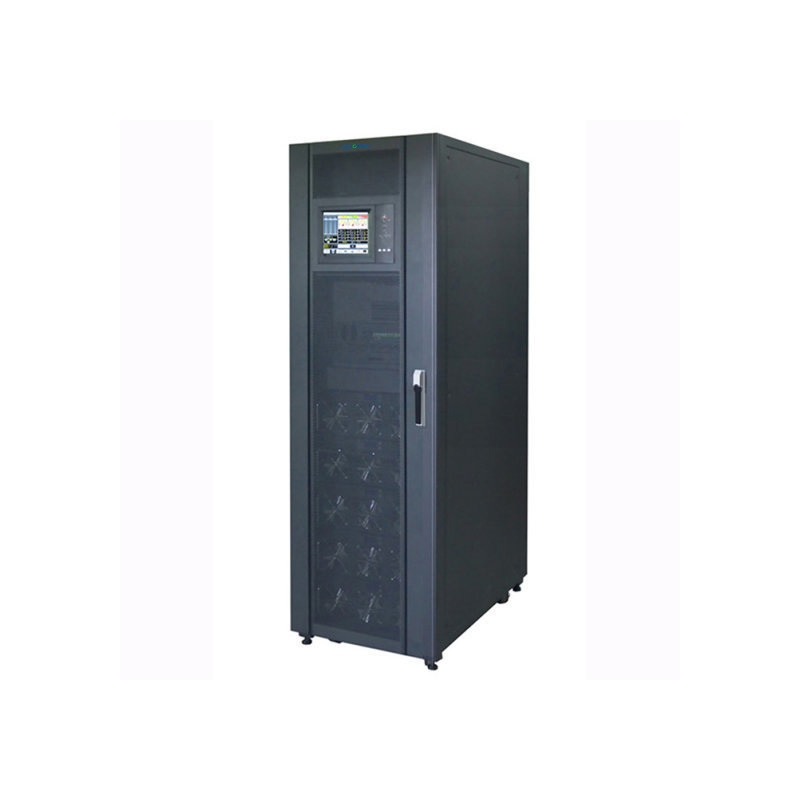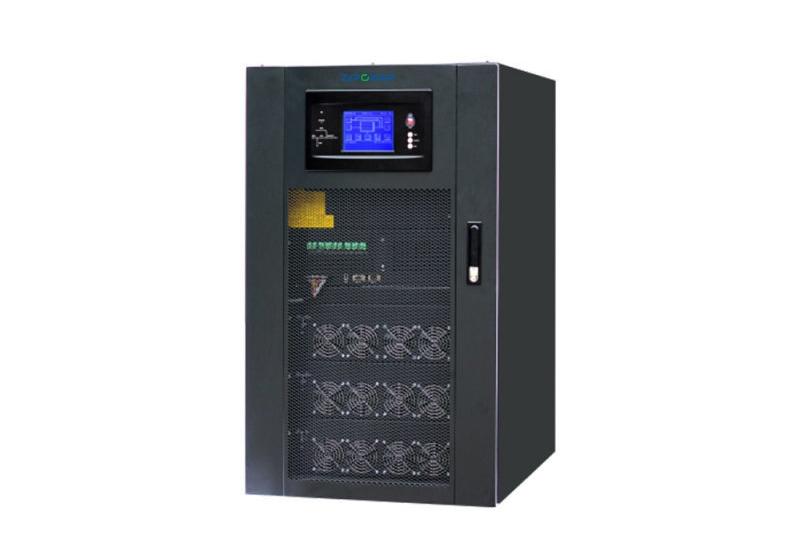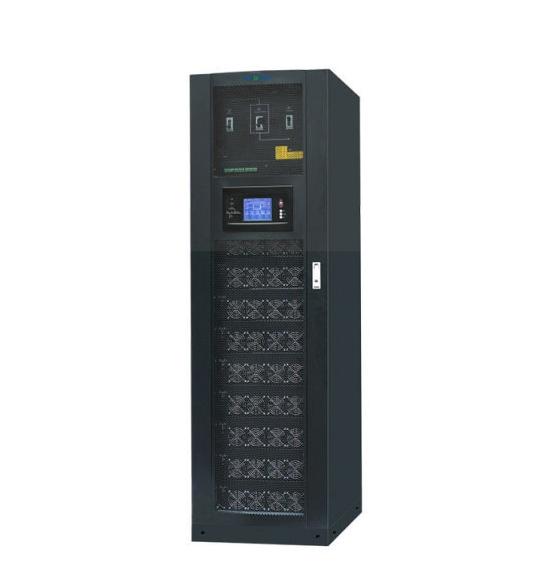

As companies expand their networks or add new equipment, power needs grow faster than expected. A traditional UPS system that once seemed enough can quickly fall behind, turning into a weak link during upgrades or production growth.
When power loads rise, overheating and unexpected shutdowns become real risks. The result? Lost work, downtime, and costly repairs. That’s why many businesses are turning to a modular UPS system—a scalable power backup that grows with their operations. A modular type UPS allows hot-swappable modules and quick expansion without shutting down the system, keeping business continuity intact.
Growing businesses face new power challenges. Modular UPS systems adapt easily as operations expand.
Think of a modular UPS as a cabinet filled with independent building blocks. Each block—or module—has its own brain and power circuit. Need more capacity? Just slide in another one. Need to service it? Pull one out. The rest keep running.
That’s the beauty of modular architecture. No long shutdowns, no rewiring nightmares. Compare that to the old monolithic UPS—you’d have to stop the whole system just to replace one part.
For instance, the 92M Series Modular Online UPS (20–200 kVA) can run up to 20 modules in parallel, all hot-swappable. Engineers often say, “it’s like adding servers to a rack,” and that’s pretty much how it feels.
A modular UPS uses multiple plug-in modules that can expand or be serviced without shutting down the power supply.
Unplanned Growth
When IT adds racks or production lines double, the original UPS setup often becomes undersized overnight. A few extra machines can push the system to its limit.
Downtime Cost
Power loss hurts. Every minute of outage can freeze assembly lines or disconnect entire networks. Recovery costs usually hit harder than the initial problem.
Maintenance Headaches
Monolithic UPS systems are not friendly to maintenance. Replacing one component means taking the whole system offline, and nobody enjoys scheduling midnight shutdowns.
Scaling Problems
Upgrading a traditional UPS means buying a bigger one. Even when you just need 20% more capacity, it’s a full replacement—expensive and disruptive.
Traditional UPS units often can’t keep up with fast-growing power demands or allow easy maintenance.

1. Scalable Growth on Demand
A modular type UPS system grows in steps. Add a module today, add another six months later—it’s the pay-as-you-grow concept in practice.
For example, the 93M Series (25–600 kVA) scales from 30 kVA up to 900 kVA, with up to 30 modules running in parallel. Engineers often expand capacity during a lunch break without interrupting anything.
2. Higher Reliability with N+1 Redundancy
Reliability is where modular UPS systems really shine. With N+1 redundancy, one module can fail and others instantly carry the load.
The 95M Series (40–500 kVA) even supports N+X setups with smart monitoring. In real projects, this design has kept entire production lines online while one module was being serviced.
3. Easier Maintenance with Hot-Swappable Modules
Anyone who’s had to power down a full UPS room just to replace a fan knows the pain. Modular systems skip that step. Technicians can swap modules live, keeping everything running. Each module comes with its own small display showing real-time status and alarms.
4. Lower Cost over Time
A modular setup avoids overspending early on. Instead of buying a massive unit “just in case,” you expand gradually. With conversion efficiency around 96%, it saves energy bills too.
Some setups even put idle modules to sleep during low-load hours, trimming power use further.
5. Compact and Space-Saving
Modern modular UPS systems pack serious power into small footprints. A 300 kVA cabinet can take just 0.66 m²—a big deal in data centers where every square meter matters. Plus, the cleaner layout just looks more professional.
Modular data center UPS systems grow with your business—scalable, redundant, and easy to maintain.

Data Centers
As virtualization and cloud workloads increase, modular UPS allows quick expansion without stopping operations. Many mid-size data rooms double capacity in under an hour—no rewiring, no noise.
Manufacturing Plants
Factories with automated lines rely on continuous power. Modular systems absorb heavy surges during startup and keep everything stable even during maintenance.
Hospitals and Labs
Critical facilities can’t afford a second of outage. Modular redundancy lets hospitals replace batteries or modules without cutting power to vital equipment.
Case Example:
A medium-sized plastics plant added two extra modules, jumping from 60 kVA to 120 kVA in under 30 minutes, all while machines stayed online.
Picking the right modular type UPS isn’t complicated once the basics are clear:
|
What to Check |
Why It Matters |
|
Load and Growth Forecast |
Estimate current use and how much you’ll add in 1–2 years. |
|
Redundancy Level |
Decide between N+1 or N+2 depending on how critical uptime is. |
|
Module Compatibility |
Power and battery modules should be from the same series. |
|
After-Sales Support |
Look for 24/7 remote monitoring and fast response service. |
|
Certifications |
Standards like ISO 9001 and ISO 14001 show tested reliability. |
To choose the right modular UPS, plan capacity, redundancy, and service support based on your growth forecast.
A modular type UPS system from ZLPOWER is more than backup hardware—it’s a long-term strategy for stability. It grows with the company, handles extra load, and avoids the rip-and-replace trap. Over time, the energy savings and flexibility usually pay for the system itself.
In short, it keeps the lights on, the servers running, and the stress levels down.
For expanding teams, that kind of quiet reliability is worth every bit of planning.
A: A modular type UPS system is a scalable backup setup made of independent plug-in modules. Each can be added or replaced without cutting power.
A: A modular UPS grows with your business, offers N+1 redundancy, and allows maintenance while running—something older fixed systems can’t do.
A: Yes. Modular UPS systems fit SMEs perfectly because they save space, cost less to expand, and deliver reliable power protection from day one.